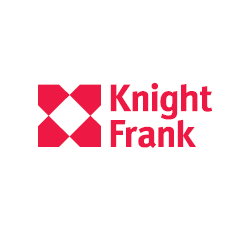Knight Frank’s latest Hong Kong Monthly Report highlights the property market’s performance across different property sectors. The Hong Kong and Kowloon office leasing markets were mostly stagnant in February due to weak sentiment and the Chinese New Year holiday.

The residential market continues to be affected by high interest rates, ample unsold first-hand inventory, and the prevailing economic conditions. The removal of all property cooling measures in late February has stimulated local and overseas demand. However, the retail market remains soft, with shop rentals in core retail areas expected to remain under pressure.
Grade-A Office
Hong Kong Island
The Hong Kong office leasing market was mostly stagnant in February due to weak sentiment and the Chinese New Year holiday. Transaction volume and rents across all major office submarkets contracted further.
Overall business sentiment was downbeat during the month, as businesses downsized operations under the pressure of the slow economic recovery. Some international law firms and sizeable Chinese-based finance and real estate corporations offloaded prime office space in the CBD. There were also a handful of decentralisation moves from these companies, if not a full retreat from the Hong Kong market.
New leasing demand was limited and piecemeal during the month. Characterised by small- to medium-sized space requirements, leasing activity was underpinned mainly by a few non-finance, Chinese-based technology and innovation companies.
Kowloon
Given the soft market sentiment towards the CNY break, leasing momentum tapered off in February. Transaction volume plummeted significantly, with new letting transactions dropping by half MoM. Small- to medium-sized deals dominated the leasing market, with electronics and sourcing companies the major take-up sources.
The insurance sector and government policy-driven organisations were the key demand drivers of office space in the Kowloon market. However, However, these demand drivers were mostly stimulated by new policy and has no sustained demand. We expect market demand to decline from Q2 onward.
In the near term, without any new positive factors to provide strong support for the market, transactional volume should remain tepid, with diminishing demand.
Residential
In the 2024 Budget in late February, the government announced the immediate withdrawal of all property cooling measures which had been in place since 2010. The Hong Kong Monetary Authority (HKMA) also eased lending rules for property buyers, including a suspension of stress tests and allowing buyers to purchase self-use apartments with lower down payments. This move has made the most relaxed market conditions in the past 14 years.
Before the Budget, Hong Kong’s residential market is still affected by stubbornly high interest rates, ample unsold first-hand inventory, and the prevailing economic conditions.
Since the withdrawal of cooling measures, developers have been actively launching new sales, leading to a notable rebound in new sales transaction immediately. The removal of all property cooling measures immediately resulted in a significant increase in local and overseas transactions in both the primary and secondary markets. This improved confidence has tempered price declines and we may now see a rebound once interest rates begin to drop in the second half of the year.
Retail
Hong Kong’s retail market continued to be soft against the backdrop of subdued economic conditions. The reason for the low YoY growth rate of retail sales value was that the border was not fully reopened in January 2023, so most local residents stayed in Hong Kong during the Lunar New Year. However, many people went north to shop in January this year. The figures demonstrate that the Hong Kong retail market is not yet out of the woods and that conditions remain very difficult.
Looking on the bright side, the retail leasing market showed more signs of a gradual recovery. Some vacated retail street shops in the popular tourist-driven areas, such as Causeway Bay and Tsim Sha Tsui, have been gradually filled up by retailers.
Two more Chinese cities, Xian and Qingdao, were officially included in the Individual Visit Scheme to Hong Kong starting on 6 March. The potential increase in overnight visitors is expected to stimulate a recovery in the local food and beverages industry, and the hotel and aviation sectors.
Retail sales in Q1 are expected to remain soft amid weak local consumption. Shop rentals in core retail areas are expected to remain under pressure while absorption is taking place slowly. In the long term, we are confident that the proposed mega-events will create more opportunities for retailers in related industries and attract more overseas visitors to Hong Kong.












